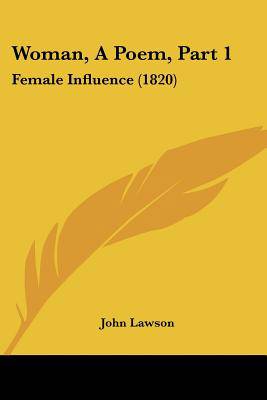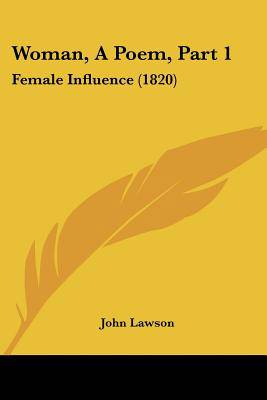
- Afhalen na 1 uur in een winkel met voorraad
- Gratis thuislevering in België vanaf € 30
- Ruim aanbod met 7 miljoen producten
- Afhalen na 1 uur in een winkel met voorraad
- Gratis thuislevering in België vanaf € 30
- Ruim aanbod met 7 miljoen producten
Zoeken
€ 25,95
+ 51 punten
Uitvoering
Omschrijving
""Woman, A Poem, Part 1: Female Influence"" is a poetic work written by John Lawson and published in 1820. The poem is a tribute to the power and importance of women in society, exploring their various roles and contributions. The work is divided into several sections, each focusing on a different aspect of female influence. The first section discusses the role of women in the home, emphasizing their nurturing and supportive qualities. The second section explores the impact of women on society as a whole, highlighting their contributions to art, literature, and politics. Throughout the poem, Lawson celebrates the strength, intelligence, and beauty of women, and argues for their equal treatment and recognition. The work is a reflection of the changing attitudes towards women in the early 19th century, and remains a significant piece of feminist literature.This scarce antiquarian book is a facsimile reprint of the old original and may contain some imperfections such as library marks and notations. Because we believe this work is culturally important, we have made it available as part of our commitment for protecting, preserving, and promoting the world's literature in affordable, high quality, modern editions, that are true to their original work.
Specificaties
Betrokkenen
- Auteur(s):
- Uitgeverij:
Inhoud
- Aantal bladzijden:
- 58
- Taal:
- Engels
Eigenschappen
- Productcode (EAN):
- 9781120958785
- Verschijningsdatum:
- 29/01/2010
- Uitvoering:
- Paperback
- Formaat:
- Trade paperback (VS)
- Afmetingen:
- 152 mm x 229 mm
- Gewicht:
- 90 g

Alleen bij Standaard Boekhandel
+ 51 punten op je klantenkaart van Standaard Boekhandel
Beoordelingen
We publiceren alleen reviews die voldoen aan de voorwaarden voor reviews. Bekijk onze voorwaarden voor reviews.











